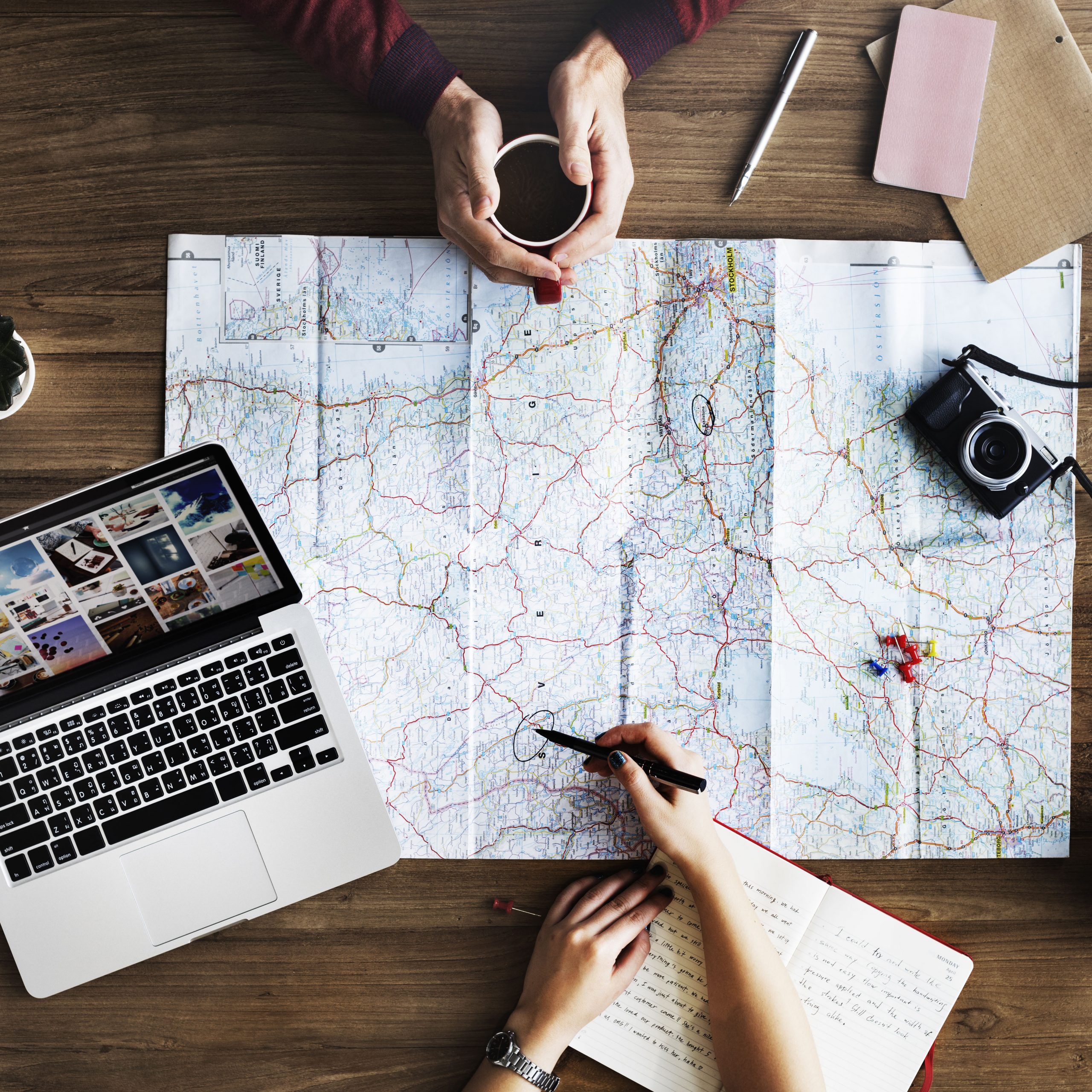You’ve picked your destination and booked the perfect hotel. You’ve researched the hippest bars and restaurants, booked advance museum tickets and tours, made a mental map of all the most instagramable spots.
What about the host community and the impact you will – or will not – have? Have you done your homework on their customs and traditions? Tipping and haggling culture? Cuisine? Current socio-political situation and religion? Have you packed accordingly? Chances are you’ll only go there once in a lifetime, so make your trip a mutually beneficial one.
Master the art of responsible travel with our top tips:
Eat, sleep and tour with LOCAL businesses
In some destinations, like the Caribbean, tourism hugely boosts local GDP and can be a major employer throughout a region. But did you know only about 20c out of every tourist dollar stays in the local economy in the Caribbean, while the other 80c ‘leaks out’? In other popular destinations, the numbers can be even more appalling.
Try to arrange your travel via a well-informed travel agent or using a search engine that favors smaller, independently owned lodgings, so as 100% of your nightly rate goes into the hands of a local small business owner rather than a massive international hotel chain – they’ll be fine without you.
Do try to leave the resort or hotel grounds and explore the area.
If you’ve already booked such a holiday, do try to leave the resort or hotel grounds and explore the area. Not only will you grow your understanding of the local culture, but I guarantee you’ll have a feast, too! Some of the best local culinary delights any place has to offer are to be found outside of hotel kitchens and foreign chain restaurants.

Book tours, tickets and activities through local companies employing local guides – ideally directly. If booking through your hotel concierge ensure they have a fair deal.
In urban destinations- if you haven’t yet – discover free walking tours. They often range from a general overview of the main attractions to themed walks on anything from Harry Potter to street art. Just don’t try to sneak out at the end of the tour – tip your guide. They are typically students who treat it as a part time income booster, and most of them are truly knowledgeable and enthusiastic guides.
Leaving some of your holiday money with local businesses, entrepreneurs and guides means helping them create a better life for themselves and a more authentic and responsible travel experience for yourself.
Learn some language
A few basic phrases, even just a simple ‘thank you’ and ‘hello’ will go a very long way! Not just to demonstrate you respect the local language and culture. It will also make you more confident and comfortable in everyday situations like taxi rides and ordering in restaurants. With Google Translate and countless new language apps popping up weekly, there are really no excuses.
Embrace the fact that you’ll probably sound completely ridiculous several times a day, your efforts WILL be appreciated.
When stuck for words, don’t forget the international language of kindness and friendship – smile.

Be a thoughtful photographer
Not all destinations were created equal, sometimes landscape and nature shots just don’t reflect the character of the place. To truly capture its essence often means to shoot people and their daily lives. How to go about it in a responsible and ethical way?
Respect people’s privacy, they are not a part of the landscape. Always ask before taking a photo. Just think of a reverse situation- someone taking a photo of you without asking permission. Wouldn’t you feel uncomfortable, if not violated? Don’t be sneaky, nobody likes paparazzi ? As an added bonus of asking someone’s permission, you’ll get an excuse to have a conversation or at least to connect using body language, which can lead to some truly enriching encounters.
In my experience, it is also a welcome gesture to show your ‘model’ the image you captured. If you want to be extra nice, offer to send them a copy of the photo. Most importantly – do not take photos of people in delicate, embarrassing or vulnerable situations, and be extra sensitive when photographing children.
Respect people’s privacy, they are not a part of the landscape.
Remember that there are parts of the world, e.g. some indigenous Amazonian tribes or the Aboriginal communities in Australia, where it is genuinely believed that a camera captures the soul (which occasionally revolves around the belief in the power of mirrors to steal souls). Do a bit of research before you travel and try to understand local folklore and attitudes towards photography. Be aware of when you could offend or even scare someone whose religion or culture opposes its practice.

Inquire whether photography is allowed in museums, galleries and places of interest you plan on visiting. While a lot of them are not only OK with you taking photos but even encourage you to share them on social media, some tourist landmarks are more conservative than others so it’s always a good idea to double check. It’s usually not allowed to use flash or tripod. Temporary exhibition rooms tend to have separate rules, as do photography and filming for research or any purpose other than personal use.
Selfie sticks, oh selfie sticks… The New York’s MoMA, Italy’s Colosseum in Rome and the French palace of Versailles have all long banned the ‘narcissticks’ to prevent damage to the artwork and artefacts. Other museums and monuments have followed suit. Aside from harm to artwork (or yourself), in places like South Korea the use of certain selfie sticks can get you into legal trouble. Leave your stick it in the hotel room if heading to a sport or music event – 99% of venues prohibit their use. In all situations, let your Common Sense guide you. And don’t try to be this guy.
Shop wisely
Skip the fridge magnets and head to local artisanal shops for some true gems of souvenirs. Not only will they often be hand made, one-of-a-kind and therefore more precious, but you’ll boost the local economy. Not to mention supporting AND promoting local arts and crafts by taking them abroad for everyone to see. How many times did my heart crumble seeing African immigrants in the streets of Barcelona selling ‘Italian’ accessories made in China, trying to make a living? Unfortunately, that’s not the way to sustainability.
Piece by piece we’re taking home our coral reefs.
Don’t forget artisanal local foods and candy make great gifts back home, as will hand made natural beauty products (soap bars are best if you travel with carry on luggage only). Why not stock up on unusual teas, herbs and spices, as well as locally grown coffee from small family run plantations if available? Anything that supports local craftsmen, farmers, artists… Be creative.
Steer clear of wildlife trade and souvenirs made from endangered species. It’s not just ivory we’re talking about. Seemingly innocent and oh-so-tempting seashells or chunks of coral are not only illegal in many countries and can get you into customs trouble, but piece by piece we’re taking home our coral reefs. Same goes for volcanic rock, any other rocks, plants and flowers.

Minimize your footprint
If you’re a lucky owner of a private jet I probably won’t convince you to switch over to shared aircraft in the name of global warming (or will I?). But if you’re thinking of renting an SUV at the destination, why not consider exploring by locally available public transport and spend your money on mojitos instead of gas? Less pollution, more local jobs sustained, more fun.
Toronto’s streetcar or Lisbon’s yellow tram will not only get you from A to B, they also typically traverse the most tourist-frequented routes, meaning you can save on the double-decker city sightseeing bus – if that’s your thing… Speaking of double decker buses, the 15 in London is the only route served by the iconic Routemaster ‘hop on, hop off’ buses – responsible travel AND one of the world’s coolest bus rides, don’t miss it.

That said, as a photography and food geek, my personal favorite way to discover a new neighborhood is on foot. Not only will you squeeze some exercise into your busy holiday routine, you’ll also increase great photo taking opportunities and spot the best local cafes and food shops (Or other shops. Personally I have a deli radar…). There’s a reason the best food discovery tours happen to be walking tours!
There’s also an array of bicycle rentals in most tourist destinations. That’s such an awesome way to move around we’ll tackle it in a separate blog post shortly.
For longer distances try buses and trains, it’s often a great experience and a memorable adventure in itself.
Keep the change
As difficult as it will be to resist giving change to a street beggar, don’t do it. Best case scenario, you’ll feel like a savior but it will be a very short term solution – again – not a sustainable way to solve problems. Even then, there is no guarantee that the person who receives the money will spend it in ways that increase the quality of his life.
More likely – they are either kids being taken out of school by their parents to beg on the streets, or a part of an organized group and you’re not supporting whom you hope you are.
Discussion, advocacy and spreading awareness about local issues and causes helps just as much as donations, if not more.
If you want to really contribute to a lasting change where you are, donate to a local homeless shelter, an NGO active in the area, or even a local school or clinic. Much better use for your money almost always guaranteed.
If you don’t get a chance or choose not to support those organizations financially, you can spread the word about them to your friends and family back home. Discussion, advocacy and spreading awareness about local issues and causes helps just as much as donations, if not more.
By all means, be generous with local street performers and buskers. Often it’s their main source of income and they put in a good effort to prepare an entertaining performance. Reward the mimes and still figures too, especially if you take a photo.

You can also make your travels meaningful by simply using a small amount of space in your luggage to pack supplies needed by community projects around the world, a fantastic initiative facilitated by Pack for a Purpose.
Another game-changing tool is Kiva which connects you with global microfinance institutions. You can donate loans for as little as $25, which is then administered to people and communities without access to banks. All money donated goes straight to funding loans, as Kiva does not take a percentage. Since you can pick a specific location, why not browse Kiva for projects from the region you’re visiting.
Dress to impress
Perhaps riding a camel in Morocco is not the best moment to flash your fancy watch, neither is a see-through top very welcome in most churches, temples and other sacred sites. Try your luck, but don’t end up in line to the Vatican or the Grand Mosque twice due to your outfit being deemed indecent.
Some places, like the Monasteries of Meteora in Greece, will provide visitors with temporary covers (think table-cloth style cloaks), but judge for yourself whether those would add excitement or misery to your visit 🙂
Therefore, it’s a good idea to always travel with a thin large shawl or scarf. Throw it in your bag and you’ll have it handy for any time you need to cover your shoulders, head or wrap it around your hips like a makeshift maxi skirt. Rule of thumb – when in doubt cover up.
Rethink your bucket list
Riding elephants, petting tigers and swimming with dolphins is all very thrilling but is it as much of a thrill for the animals, or are you contributing to a life in captivity and distress? Unfortunately most of the animal entertainment activities operators put profits ahead of the well-being of the wildlife. Animal circus is SO last millennium, and I really find it hard to see how the likes of Sea World are any different…?
If you absolutely cannot imagine your trip to South East Asia without riding an elephant, make sure you do that through a responsibly operated sanctuary. Tigers, elephants etc. are wild animals and a sanctuary ought to have a very good reason to exist, and domesticate them, like this one in Laos.
Ask questions before you book. Where do the animals come from? What are their living conditions? What future do they face? How is the company helping protect them and the native ecosystem? Is there a limit to the daily number of tourists? If they hesitate to answer it should raise your doubts about their transparency and therefore their practices. Responsible tours actively support the local community and ecosystem by funding anti poaching patrols, advocacy and by providing employment to local people, notably ex-poachers-turned-guides.

Go plastic- and paperless
It may be hard to resist a good old school paper book travel guide or a beautiful journal, but at the very least try to skip printed boarding passes and hotel booking confirmations. Download your maps so you can easily access them offline, either using one of many excellent travel apps, save it in iBooks or even simply keep a PDF file. Store all your beach reads on Kindle, and your shorter reads in Pocket. If you do bring paper backs, find out if your hotel has a spot for book exchange. You might find a great new read and/or free up some space in your luggage for all the holiday shopping.

You’ve heard the average time for a plastic bottle to degrade is around 500 years, right? Just think of all those bottles from your week’s stay in Bali still sitting in their landfills in 2517! 😉
Find out what’s the situation with drinking water where you’re going. You’d be surprised by how many countries boast purified and perfectly safe to drink tap water. Many hotels also offer filtered water and water coolers. If you’re really concerned or heading to a more exotic destination, try using a sterilization tool such as pills or a UV pen. Bring a reusable water bottle from home and keep refilling.
Top Tip: these bottles are airport TSA friendly and will save you tonnes of money on overpriced bottled water at the terminal, as most airports these days offer drinking water fountains. (You can also carry a standard plastic water bottle through security as long as it’s empty). Reusing is better than recycling! While we’re at it, skip the single use plastic cups, too.

Reduce your waste
Aside from bringing your own reusable water bottle and filling it up with safe tap or boiled water, try to limit the waste by getting into the habit of using refillable travel size bottles and jars for your toiletries, buying products with minimal packaging, and recycling the unavoidable packages whenever possible.
Try to carry a foldable reusable bag with you and say no when offered a single use plastic bag with any purchase; they really take very little space in your purse or backpack. Waste management is still a major issue for many developing countries so it’s extremely important that we all do our bit.
Diligent waste disposal in national parks and reserves is particularly important due to its accessibility by wild animals. Human food scraps can result in malnourishment or starvation due to inappropriate diet and disruption of natural hunting or food-gathering behaviors. Obey the ‘do not feed the ducks/pigeons/coyotes…’ signs as well, they are there for a good reason.

Monitor your water usage – are you staying at a hotel with a golf course, three swimming pools, and 400 guests taking two showers a day in a country that has drought issues? While tourism, on the whole, constitutes a relatively low 1% of global water consumption, you should still aim to use this precious resource sparingly and be mindful of the water scarcity in the region you’re visiting.
Cancun in Mexico is an example of the local community with no adequate water supply while the nearby resorts keep watering lawns, golf courses, and meeting every tourist’s need.
Consider CBT
No, it’s not a new vaccination. Even though it seems to be the most ancient way of traveling, few modern day travelers are familiar with the concept of Community Based Tourism. About time this changed as it brings enormous benefits to both the host and the visitor.
These projects offer services such as accommodation, traditional gastronomy, eco-tourism, and culture. The community boosts their income and gets to directly participate in the conservation of local culture and natural resources. Travelers are in for a genuine experience – an immersion in local traditions, involvement in cultural activities and an opportunity to see unspoiled eco-systems where mass tourism is as of yet unheard of. Win – win.
If you demonstrate a hands on attitude and don’t miss your private toilet and shower, in some communities you might even get the opportunity to volunteer on various development projects they have going on, especially if you’re planning a slightly longer stay.
The number of CBT projects is growing steadily and is well established in Central and South America (Colombia and Costa Rica amongst others), Central Asia (Kyrgyzstan), as well as some parts of Africa like Ghana and Uganda.

Spread the love
Responsible travel doesn’t end on your return. Start the conversation about it with people back home – friends, family, social media followers. Nobody means to cause intentional harm, but some aspects may be more obvious than others. You wouldn’t immediately think buying starfish is not OK if it’s on the display of every souvenir shop, would you? It is only through advocacy and education that we can help spread the word about sustainable tourism.
Leave constructive reviews for your hotel, tour operators, restaurants you loved (or didn’t), even airlines. You can also email them directly with any comments you may have, don’t underestimate the power of feedback!
Remember, just because you have the right to do something doesn’t mean it’s the right thing to do. We can and DO have a very big impact on the world while we travel. Let’s make sure it’s a positive one.






Comment (0)